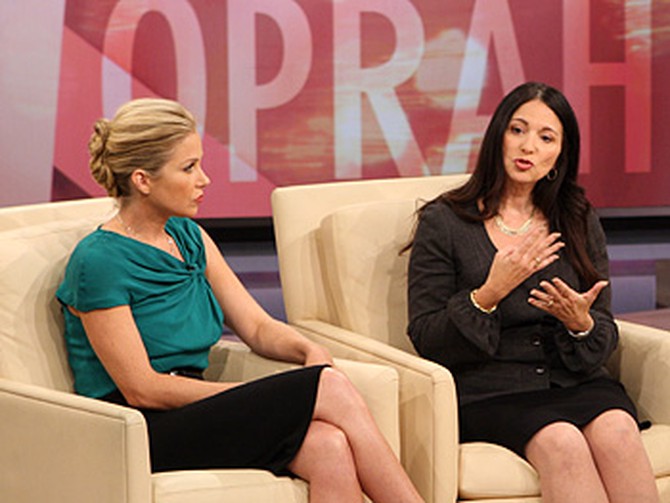Breast Cancer Battles
One factor that can affect the accuracy of a mammogram is the density of your breasts. According to Dr. McAndrew, the density of a breast is determined by the amount of glandular tissue you have. In a mammogram, the glandular tissues are displayed as very dark areas. These areas make it difficult to see smaller changes in your breasts from year to year. "A very dense breast is like you're looking through a snowstorm," Dr. McAndrew says. "Only your radiologist can tell you [the density of your breasts]."
When seeing your physician, Dr. McAndrew says you should be your own advocate. Ask your doctor if you have dense breasts. If you learn your mammogram is "normal," find out what "normal" really means. "We really have to use all of the different treatment options that we have—breast self-examination. We need to mammogram," Dr. McAndrew says. "Possibly MRI, possibly ultrasound."
When seeing your physician, Dr. McAndrew says you should be your own advocate. Ask your doctor if you have dense breasts. If you learn your mammogram is "normal," find out what "normal" really means. "We really have to use all of the different treatment options that we have—breast self-examination. We need to mammogram," Dr. McAndrew says. "Possibly MRI, possibly ultrasound."
Published 09/30/2008
As a reminder, always consult your doctor for medical advice and treatment before starting any program.


